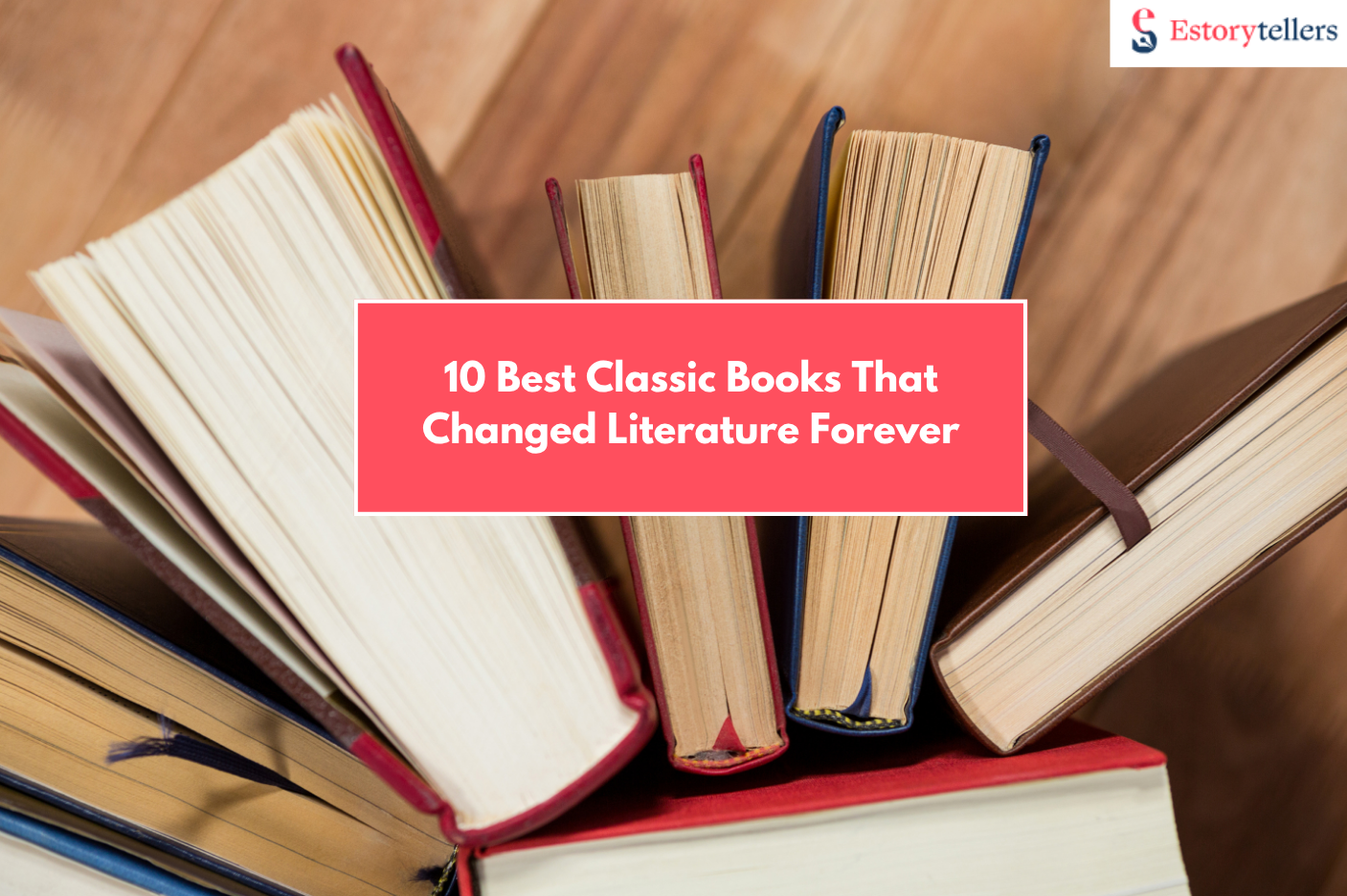Estorytellers is a premier ghostwriting and book publishing agency that specializes in delivering high-quality writing solutions customized to the unique needs of authors and businesses. We are the most sought-after ghostwriting company that handles every aspect of your book writing, book publishing, and marketing all under one roof.

There’s something magnetic about classic books. These books transcend time. They shape our worldview, spark empathy, and anchor us to shared human stories.
You’re here because you want the 10 best classic books—novels that matter. We’ve curated top titles, examined their impact, and added fresh insights to help you choose—and love—the right one.
In this guide, you’ll learn:
Let’s explore these timeless reads.
We help you write and publish literature that leaves a lasting legacy—just like the greats.
Start Writing YoursA masterful exploration of justice, innocence, and race in the American South. Scout Finch’s voice makes this story unforgettable.
Why it matters: It’s a touchstone for conversations on empathy and moral courage.
Takeaway: True understanding begins when you “walk in another’s skin.”
Cultural relevance: Voted one of the greatest novels of the last 125 years
Welcome to a world ruled by surveillance, propaganda, and Big Brother. Winston Smith fights for thought and freedom.
Why it’s essential: Its dystopia warns us how power corrupts—and endures.
Takeaway: Guard your truth. Upholding freedom is always a choice.
Modern impact: Still cited as a warning in our digital age.
A witty look into manners, class, and romance in Regency England. Elizabeth Bennet and Mr. Darcy captivate.
Why it endures: Brings sharp social insight packaged in humor and heart.
Takeaway: Preconceptions cloud relationships—look deeper than surface assumptions.
Cultural mention: A top “must-read” in many classic lists
“Call me Ishmael.” A deep-sea epic of obsession, revenge, and meaning.
Why it stands out: Rich in philosophy with wild whaling lore.
Takeaway: When obsession hijacks reason, destruction follows.
Classic status: A pinnacle of American literature
1920s jazz, wealth, love, and broken dreams. Jay Gatsby reaches for more than money—he reaches for a feeling.
Why it’s timeless: It’s an elegy to hope, illusion, and American ambition.
Takeaway: Chasing illusion costs more than you think.
Pedagogic favorite: Central to literature courses worldwide
Dark moors, stormy love, and toxic obsession. Heathcliff and Cathy’s love destroys everything around them.
Why it’s unique: Gothic, raw, and layered with psychological complexity.
Takeaway: Passion unchecked becomes torment.
Cultural note: Frequently appears in beginner and must-read lists
A psychological descent into guilt and redemption in St. Petersburg. Raskolnikov’s internal battlefield reveals the limits of logic and the power of conscience.
Why it’s profound: Unflinching look at morality, suffering, and spiritual rebirth.
Takeaway: Crime steals more from the offender than the victim.
Enduring relevance: Famous in philosophical and literary circles
A boy and a runaway slave journey down the Mississippi River on a raft, searching for freedom.
Why it matters: A heartfelt and enduring satire of racism, authenticity, and belonging.
Takeaway: Moral responsibility is earned in action, not by right.
Literary impact: Called “the source of all modern American literature”
Set among Russian aristocrats, this novel explores love, duty, and society. Anna’s decisions ignite passion—and tragedy.
Why it resonates: A psychological masterpiece examining society’s invisible chains.
Takeaway: True freedom demands responsibility—and sometimes heartbreak.
Classic position: Often named among the greatest ever.
Seven generations of the Buendía family unfold in magical realism. History loops, family secrets unfold, and myths come alive.
Why it dazzles: Dreamlike prose blends fantasy with Latin American reality.
Takeaway: Destiny is a family loop that must be summoned and broken.
Literary acclaim: A Latin American pillar of world literature
We help authors publish thought-provoking books that resonate across decades.
Create Impact With EstorytellersOther classics you can’t ignore:
Reading classics isn’t about checking a box. It’s about making literature a lifestyle.
Here’s how to turn classics into a lasting habit:
Start with one book per quarter. Don’t rush. Let the story live with you.
Even in the age of BookTok and viral eBooks, modern writers continue to draw inspiration from the classics.
Here’s what they take:
Many bestselling contemporary books—like The Secret History, Atonement, and The Goldfinch—openly echo the classics. Knowing the originals makes today’s stories richer.
Reading classics isn’t old-fashioned—it’s a backstage pass to understanding modern storytelling.
Ever dreamt of writing a novel that people will still read decades from now? Whether it’s a family saga, a historical drama, or a modern fable, Estorytellers can help turn your idea into a timeless piece of literature.
Work with professional ghostwriters who know the craft, from plot structure to character arcs to language that lasts.
Skip the guesswork of formatting, ISBN registration, or choosing between Amazon, traditional, or hybrid publishing. Estorytellers make it seamless.
Writing a classic is only half the journey. Let Estorytellers help you:
Ready to write your legacy? Start with Write Right today.
Our writing and publishing team helps you shape elegant, timeless prose that speaks to generations.
Write Beautifully With EstorytellersThese 10 best classic books reflect our deepest truths about society, humanity, and ourselves. From Scout Finch’s morality to Gatsby’s longing, each book resonates in 2025.
Choose your next read based on mood:
Pair reading with Estorytellers summaries to boost comprehension and enjoyment. Here’s to discovering voices that spoke centuries ago—and still speak to us today.
Collaborate with our team of highly skilled ghostwriters and editors to bring your concepts to life in the form of a compelling nonfiction book that earns a spot on the shelves.
From ghostwriting to publishing, printing, and marketing — we help you become the author you were meant to be.
📘 Ghostwriting | 🖨 Publishing & Printing | 📢 Book Marketing
✅ 100% Royalties | 📈 Amazon SEO | ✍ All Genres
Get Started Today